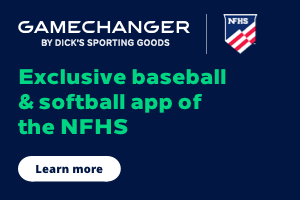Improving from Within Through Solo and Ensemble Participation
By Steffen Parker on November 13, 2019 hst PrintMany high school bands spend hours and hours in rehearsal learning, improving, fine-tuning and attempting to perfect the craft of musical performance. Those rehearsals primarily focus on the ensemble itself, the balance of each musical composition, the overall effect that the music is written to create and – for marching bands – the combination of music and movement that make those half-time shows so powerful.
While some school programs have opportunities for smallgroup instruction, many do not, leaving students to work on their own. They work on improving their technique, tone quality, range and performance capabilities through individual practice at home or at school. Since student practice is at the core of every music program, finding ways to encourage that effort and provide feedback on what is accomplished is vitally important.
Some students are able to afford private lessons, although lessons specifically geared to the student’s instrument are not always available. However, solo and ensemble performance opportunities are available and affordable in almost every region and thus a possibility for every high school musician.
Solo and ensemble festivals offer a broad spectrum of music, performance opportunities from unaccompanied solos to quartets and small ensembles, and they provide verbal and written feedback on each performance for each student. The combination of selecting one’s own music, performing it alone or with friends, and receiving adjudicator comments make solo and ensemble festivals an important part of a high school musician’s overall experience in band.
Each solo and ensemble festival has different guidelines, different repertoire and a different schedule, but, in all cases, music educators serve as adjudicators to provide participating students much-needed feedback.
Quality adjudication follows the Three Cs method where the verbal and written comments include Compliments, Critiques and the all-important Corrections. From that feedback, the student can make adjustments in his or her practicing and improvements in musical skills, as well as bring benefits to other performances – especially their high school band’s concerts and shows. Undoubtedly, the school’s music educator will find that the adjudicator’s feedback closely matches theirs as well, reinforcing those concepts for the student. The surprise will be that the student “gets it” when he or she reads the adjudicator correction, which supports what the band director has been saying for years.
In an effort to ensure that all students take advantage of these opportunities to participate in solo and ensemble festivals, teachers might consider providing credit toward their school grade for participation; honoring them with a certificate at the next band concert; noting their effort in a prominent location in the band room, music area or school; providing some or all of the funds needed to participate; and, of course, encouraging them verbally and being there, if possible, to cheer them on and congratulate them upon completion. One or more of these efforts could mean the difference for a student and the benefits yet to come are well worth the time, effort or cost of such support.
With a little effort to connect with the local festival, encouraging students to participate, providing funds for fees and transportation, and an acknowledgement on paper, more students would be willing to join in. They would perform music that is not in their regular school program repertoire and, by doing so, would reap the benefits of the preparations required. Musicians learn by performing – make sure that your students are aware of every possible opportunity to do so.
Steffen Parker
Steffen Parker is a high school music educator and computer support specialist from Vermont. He organizes music festivals and supports other states with online services for their events. He is a member of the High School Today Publications Committee.
Most Recent Articles
- nfhs news NFHS Learning Center Unveils School Honor Roll Program
- NFHS Network Contact Information
- nfhs news Shout-out to Health-Care Workers and State High School Associations
- state news Stadiums Across Colorado Light Up to Show Support for Students
- gymnastics-girls article ‘They became a family’: How New Castle gymnastics qualified for state for first time since 2002



